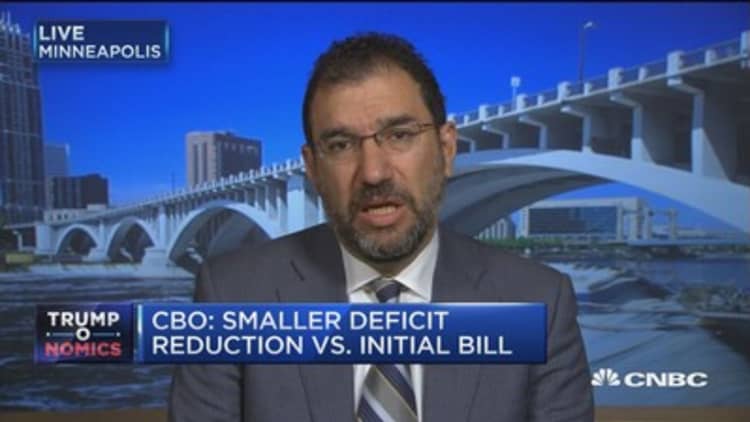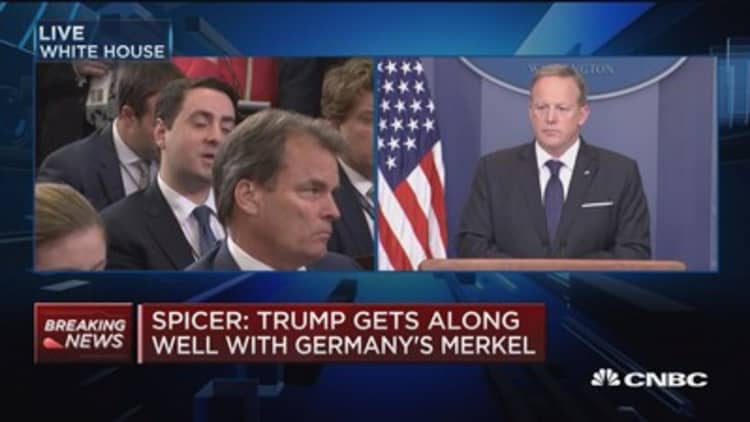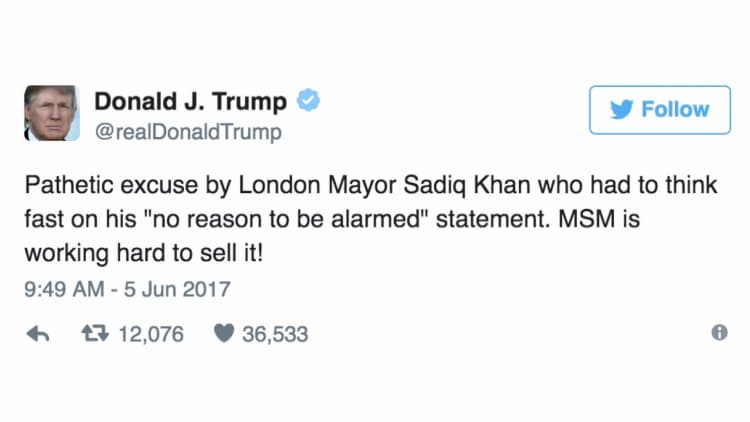On two questions over the past week, President Donald Trump illuminated aspects of his character so different from his White House predecessors that Americans have been slow to fully appreciate them.
The first question, arising from the administration's withdrawal from the Paris climate agreement, was whether the president believes climate change is a genuine problem or a hoax as he previously claimed. Behind the White House refusal to answer was a simple reality: On issues of public policy, Trump does not have beliefs in any conventional sense.
The second question was why Trump, after terror attacks in London, would use Twitter to attack that city's mayor and complicate the legal defense of his executive order on travel involving six majority-Muslim countries. The answer: In lieu of beliefs on policy, Trump has impulses — and feels compelled to express them whether they advance his larger goals or not.
Changing positions, again and again
On matters large and small, emotional and esoteric, an absence of conviction has marked Trump's politics from the beginning. He has identified himself with both Republicans and Democrats. He has strongly advocated, then strongly opposed, abortion rights.
He has switched sides on health care, military intervention in the Middle East, the relevance of NATO, Chinese currency policy and the fate of the Export-Import Bank. He distinguished himself from 2016 Republican rivals by promising to protect Medicaid and other entitlement programs from cuts; now he backs massive cuts in Medicaid. He campaigned ripping Wall Street and pledging to help working-class
Rather than intellectual conversion, his divergent positions have tracked shifts in his immediate interests as he sought a path in politics, then moved from presidential candidate to the Oval Office. As his own 2016 bid foundered, Florida Sen. Marco Rubio labeled Trump a "con man."

Elizabeth Spiers,
The White House press secretary himself suggested a similar explanation for candidate Trump's Obama-era claims that the government falsified unemployment statistics. After an encouraging report this March, my colleague Eamon Javers asked whether Trump still disbelieved the data.
"I talked to the president prior to this and he said to quote him very clearly," Sean Spicer said with a smile. "They may have been phony in the past, but it's very real now."
The same reasoning can explain Trump's reticence on climate change. Once he wooed conservatives by claiming the problem is a Chinese hoax; disavowing that claim now could alienate core supporters.
Yet repeating it would expose the president to further embarrassment on the world stage. He hasn't.
Four recurring behavioral impulses
At the same time, Trump displays consistent behavioral impulses that, for better or worse, he won't or can't restrain.
One is wielding grievances to seek every scrap of advantage from interactions with others. In business, he squeezed small subcontractors over work invoices; as president, he complains that NATO members, trade partners and signatories to the Paris climate accord bilk the United States.

A second is
A third is his instinct for racial solidarity. As president of Trump Management, he was accused by the federal government for excluding blacks from company properties; he called the charges "ridiculous" but settled the government's lawsuit.
As a candidate, he complained that the Mexican ancestry of the federal judge overseeing his Trump University fraud case precluded a fair trial. In the name of preventing terrorism, he called for banning Muslims from entering the country.
A fourth impulse is his professed determination to retaliate against adversaries of any kind — trying to hit harder than they had ever hit him.
Attacking the mayor London after a massacre
Those impulses merged to produce the president's tweetstorm on Monday following the London terror attacks.
Trump accused his own Justice Department of making a bad deal in revising the initial executive order on the entry of people from certain Muslim countries. He mocked the "politically-correct" aversion to calling the order a "travel ban" — capitalizing the words for emphasis.
He attacked London Mayor Sadiq Khan, a Muslim who had previously criticized him, even as the mayor was coping with terrorism. The president did so by misrepresenting the mayor's attempt to calm Londoners.

The backlash followed immediately. Top Republican lawyers — including the husband of White House aide Kellyanne Conway — complained that Trump had undermined his own administration's legal arguments. The acting U.S. ambassador in London — Trump still hasn't yet nominated a permanent one — praised Khan publicly.
Powerless to do anything else, White House press representatives tried to wish the problem away by playing
"I don't think that's actually true," spokeswoman Sarah Huckabee Sanders responded when asked about Trump's misrepresentation of the mayor's words. "The media wants to spin it that way."


